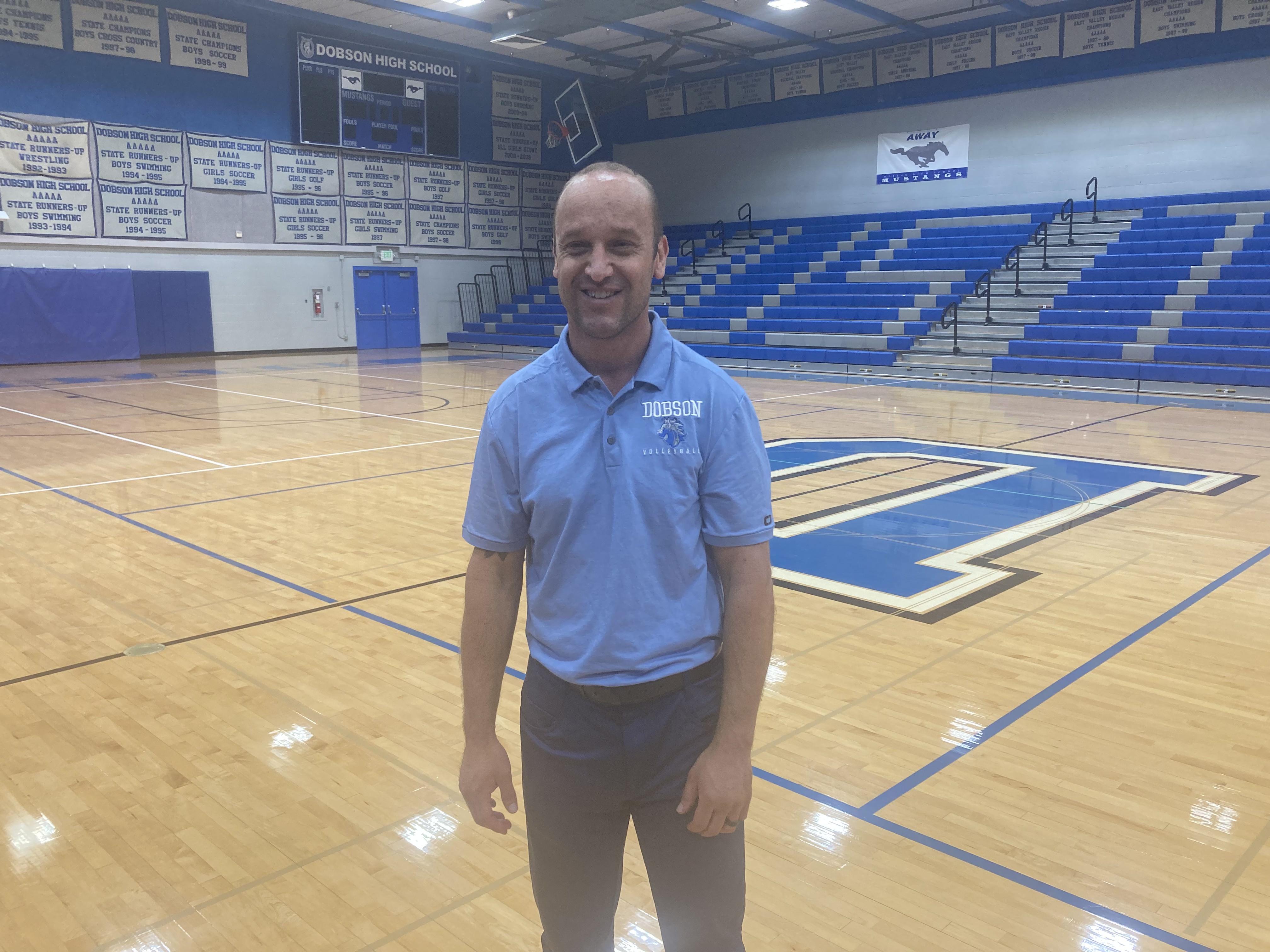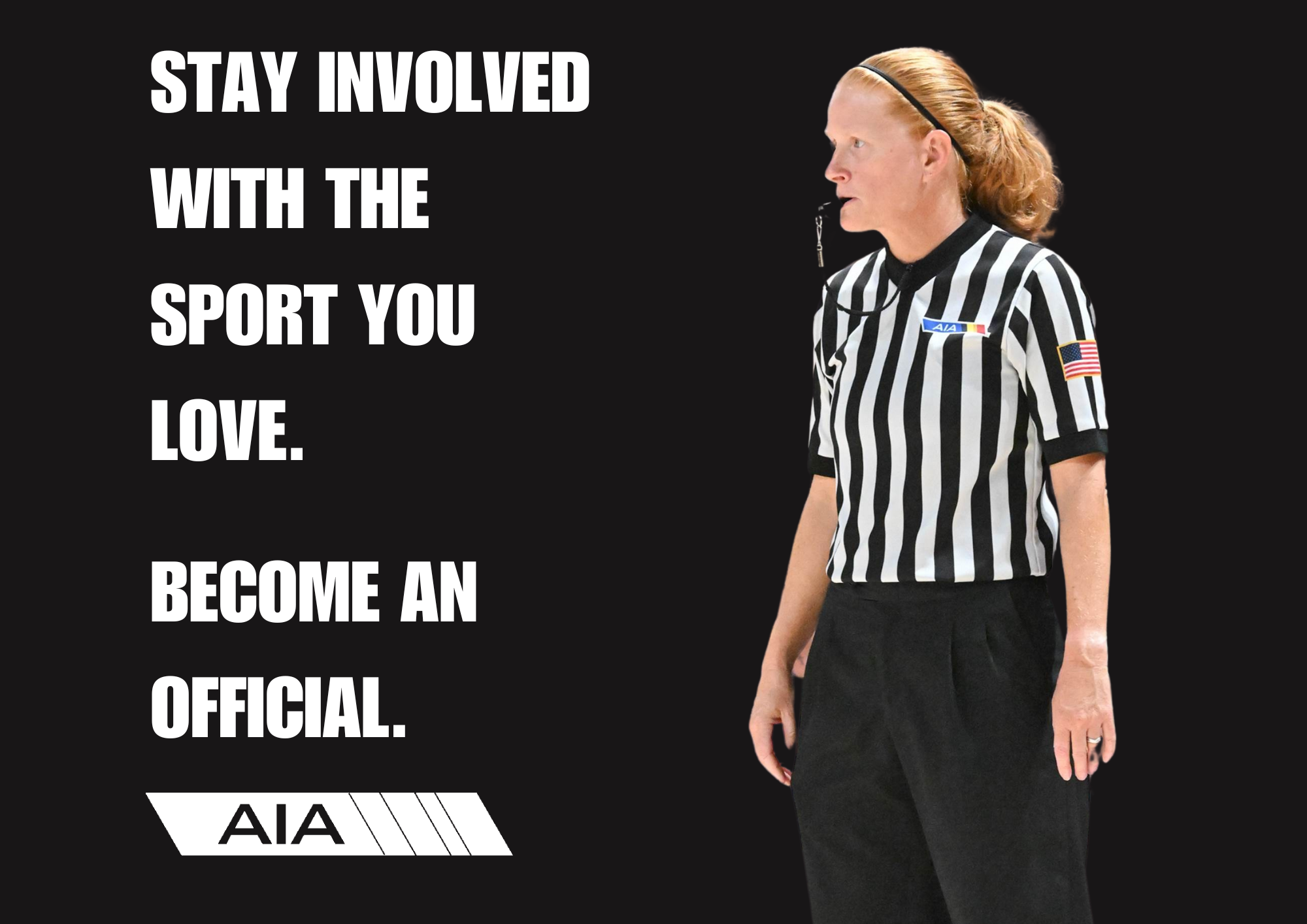Multiple accidents, recoveries changed Jim Van Wicklin's approach to coaching
November 3, 2022 by Sean Brennan, Arizona State University

Sean Brennan is an ASU Cronkite School of Journalism student assigned to cover Dobson High School for AZPreps365.com
To most drivers passing by, the conjunction of Rural and Ray Roads is just another intersection in Chandler. But to Dobson High School volleyball head coach Jim Van Wicklin, it represents much more.
Four years ago, it was at this intersection that he was involved in a car accident that capped off a series of life-changing injuries. After recovering from surgeries, reaggravated injuries, and chronic pain, he decided to use his own experiences to help high school athletes who are struggling with anxiety.
It all began in March of 2018 when Van Wicklin suffered a concussion while playing a pickup basketball game. It didn’t take long for him to realize he injured more than just his brain.
“Weeks after the concussion, I continued to have this numbing sensation in my hamstring,” Van Wicklin said. “So I’m thinking, I pulled my hammy or something. But as the days continued, the numbness began to spread into my calf, foot, chest, arms, and more.”
After receiving a two-hour-long MRI, he was told that his neck was severely fractured and needed to receive an emergency infusion.
This two-week-long recovery was only the beginning of Van Wicklin’s journey.
On the way home from his first day back at work, Van Wicklin was rear-ended, which re-aggravated the neck injury. He soon learned another surgery was required, this time an invasive one to mend his spinal cord.
It was during the ensuing recovery process that Van Wicklin finally drew a positive from his injuries: a reinvigorated relationship with his eldest son, Christian.
The key to Van Wicklin’s pain decreasing was walking, something he could do with his then-15-year-old boy. Through going on walks and spending more time together at home, a meaningful bond blossomed between the two.
“That [recovery process] became the start of a brand-new relationship with my son,” Van Wicklin recalled. “I realized how much I’d missed in his life and how little I truly knew about him. I promised to be more involved and not stay so busy working and all the other things that kept me away from being a great dad.”
However, just as Van Wicklin’s life began to have a sense of normalcy to it, tragedy struck again.
While driving through the Rural and Ray Road intersection in June of 2018, he was nailed by an oncoming car, resulting in his own vehicle flipping upside-down and dragging eighteen yards across the street. This moment, according to Van Wicklin, was one of the scariest of his entire life.
“I just remember being upside down and saying, ‘Please stop, please stop, please stop,’ as mycar is rolling,” Van Wicklin said. “In that moment, I really thought I was going to die.”
The crash re-injured Van Wicklin’s back, but this road to recovery was different from the rest. After receiving two surgeries in as many months, the doctors weren’t willing to operate on him again, meaning Van Wicklin would have to get out of pain on his own.
Because walking didn’t provide relief this time, the immediate solution for Van Wicklin was painkillers. He began taking oxycodone. And while he initially started taking the drug for pain, it quickly became a remedy for the depression he felt from constantly hurting, especially after his first trip to the gym since being injured.
“I hadn’t worked out in like six months at this point,” Van Wicklin said. “I knew if I could just get in a workout, I might feel a little better. However, I go to the gym, and I can’t even bench press the bar. I was embarrassed and kept saying, ‘What is wrong with me?’ So now, I’m even more depressed because I’m weak.”
However, after a transformative conversation with his father, Van Wicklin began to put his life back on track. He soon came to realize that using medication won’t get him out of pain; only hard work and determination will.
“The most important things I learned through this are that pain, fear, and anxiety make you extremely angry and depressed,” Van Wicklin said. “The more and more medication I took made me believe those dangerous thoughts and feelings were under control, when it was only masking it. I needed to get my body and mind back to a good place, and only hard work in the gym was going to change me.”
Little by little, Van Wicklin began to feel more confidence and less pain and fear. There were multiple instances where Van Wicklin felt extreme anxiety, but coming out of those experiences on top did wonders for the new-and-improved coach.
Van Wicklin began using his own experiences to help high school athletes, who often feel anxiety from sports, academics and social lives.
“My experiences have helped me understand a little more of what these girls are feeling as they walk into practice, when they step on the court, and even more, what they’re feeling when their personal lives experience chaos,” Van Wicklin said.
His new approach to coaching has benefited numerous volleyball players, and those at Dobson are no exception. Senior outside hitter Tailynn Burcham said that Van Wicklin’s instruction has helped her maintain composure during matches.
“He just tells me to blank everything out, like space out and just focus on the game, which is what I do,” Burcham said. “He just tells me that it’s just me here, and I just have to play the game.”
But Van Wicklin’s support of his athletes is not just on the court. The Mustangs’ bench boss is the reason that some players, like senior opposite hitter Nadia Range, played volleyball this season.
“He’s actually helped a lot,” Range said. “There was a time where I was about to quit [volleyball]. But then I had talked to him and some other coaches, and he had calmed me down and said everything was going to be okay and not to give up.”
Despite his immediate impact at Dobson, Van Wicklin isn’t satisfied with the progress he’s made so far. He admits that he hasn’t found a single answer to helping young athletes manage anxiety while acknowledging he’s come a long way from where he was three years ago. And there’s nothing Van Wicklin wouldn’t do to better understand how he can help players overcome stress.
“It’s still a journey,” Van Wicklin said. “It’s a journey that I don’t know will ever end, but I like when I find a way to have a positive impact and get one step closer to a solution. If the only way I can find new ways to reduce these problems in the athletes I coach is to have another car accident or another surgery, bring it on.”


